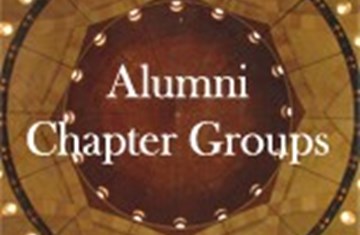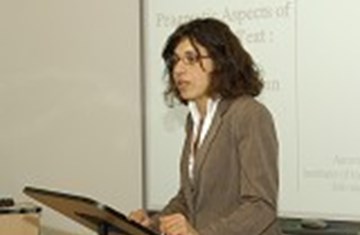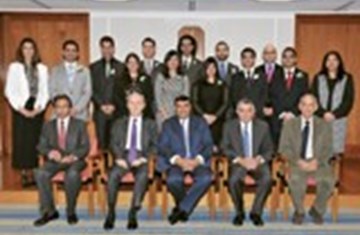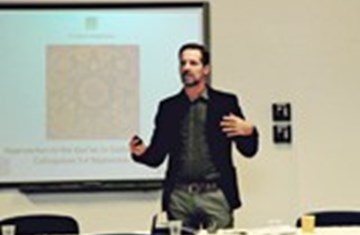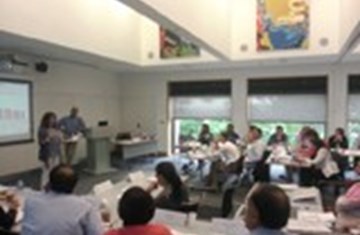IIS Scholar Presents Paper at MESA 2010
Dr Nuha Al-ShaarResearch Associate in the Institute’s Qur’anic Studies Unit and an IIS Alumna, presented a paper as part of a panel entitled “Reason and Revelation” at MESA 2010 in San Diego. The panel also included a paper by Dr. Alnoor Dhanani, a specialist in Islamic Intellectual History and former head of the Department of Graduate Studies at the Institute.
Employing the arguments of a range of Muslim philosophers, such as the Ikhwan al-Safa’ (Brethren of Purity), the well-known philosopher Abu Zayd al-Balkhi (d. 322/934), the Neoplatonic philosopher al-‘Amiri (d. 381/991), Abu Sulayman al-Sijistani (d. 375/985) and Abu Hayyan al-Tawhidi (d.1023), Dr al-Shaar presented an analysis of the dual framework of secular and religious knowledge as a valid source for moral inquiry. Through close examination of the different positions of these medieval thinkers towards the study of religion and philosophy, Dr al-Shaar discussed their views regarding whether the two can, in fact, be combined.
The presentation highlighted how these philosophers (except for al-Sijistani) saw no conflict in the interaction between religious and secular knowledge. As such, they were able to offer a framework where religion and philosophy complement each other, stressing that both can lead to the truth and contribute to the well–being of the community. In so doing, they shifted the focus in categories of valid knowledge from its sources, i.e., revealed or non-revealed, to the benefits for society. Dr al-Shaar also explored the systems of classification of knowledge encouraged by each of these philosophers.
The paper concluded that these classical models can serve as vital analogies for current attempts amongst Muslims to engage with the challenges of modernity. Classical thinkers responded creatively to new forms of knowledge (Greek philosophy, etc.) which, at the time, were considered alien, for the benefit of their societies. Muslims today can apply this heritage of openness to define the place of the sacred and of human reason in their relationship with the modern world, while still remaining true to the ethos of Islam.

